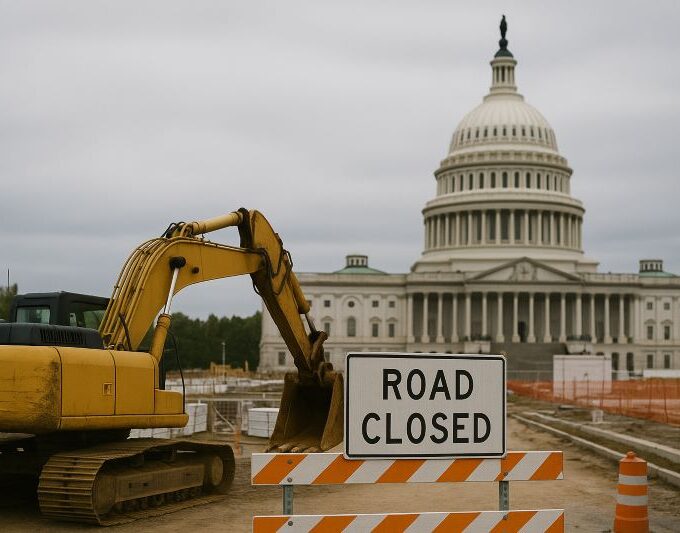The United States’ “reciprocal tariffs” took effect on August 7, setting the tariff rate for most Swiss exports to the U.S. at 39%—the highest among all developed countries. The New York Times reported that “the 39% tariff has shocked the Swiss, and ever since the rates were announced, a major question has echoed from Zurich to Geneva: Why us?” This neutral country has long believed it enjoyed an “excellent” relationship with the United States, yet it now faces a much higher rate than the European Union’s 15%.
Before the tariffs took effect, Swiss Federal President Keller-Sutter urgently traveled to Washington to negotiate, but failed to meet U.S. President Trump, having only a “courtesy meeting” with Secretary of State Rubio. In the end, Keller-Sutter left Washington empty-handed. However, Swiss authorities have disclosed that they are still in talks with the U.S. to reduce the tariffs. Bloomberg described Switzerland’s tariff crisis as “a drama of disappointment turning into despair.”
Why Switzerland?
Data shows that last year, the United States ran a trade deficit of over $38 billion with Switzerland. In the first half of this year, the U.S. trade deficit with Switzerland surged further, approaching $48 billion. President Trump expressed strong dissatisfaction with this deficit, saying Switzerland had not taken sufficient measures to address the bilateral trade imbalance.
According to The New York Times, the large U.S. trade deficit with Switzerland is mainly due to Switzerland’s dominance in certain export sectors. Gold is the most notable example—over the past few months, gold has accounted for two-thirds of Swiss exports to the U.S. This is largely because heightened U.S. policy uncertainty this year has driven investors to buy gold in large quantities.
In addition, Switzerland’s traditional strengths—pharmaceuticals, precision machinery, watches, chocolate, and cheese—are also major export earners. Aside from gold, pharmaceuticals make up half of Switzerland’s exports to the U.S. In 2024, Swiss pharmaceutical companies, including industry giants Roche and Novartis, exported $35 billion worth of goods.
In the precision machinery sector, Swiss equipment is widely used in U.S. industries such as automobiles, computers, and aircraft parts. Last year, the U.S. imported about $12 billion worth of Swiss precision machinery. Furthermore, U.S. imports of Swiss watches totaled over $5 billion last year, accounting for around 4% of all U.S. imports from Switzerland.
“If tariffs must be imposed, luxury watches are the best target,” analyzed the Financial Times. Levying tariffs on expensive watches could help Trump project an image of “caring for the common people.” Unlike tariffs on countries like Bangladesh—which produce cheap clothing that ends up in U.S. discount stores—taxing luxury goods would ultimately be paid for by wealthy Americans.
Swiss-American historian Gutmann from Lucerne Business School noted that although U.S. Treasury Secretary Yellen has referred to Switzerland as a “sister republic,” in reality, recent years have seen “more friction than affection” in bilateral relations. For instance, in cables leaked by WikiLeaks, U.S. diplomats described the Swiss as difficult to deal with. Additionally, the two countries have clashed over Switzerland’s banking secrecy laws and U.S. investigations into UBS.
ETH Zurich economist Gebhardt estimates that U.S. tariffs could cost Switzerland between 7,500 and 15,000 jobs. Many economists predict the tariffs may reduce Switzerland’s GDP by up to 1%.
Switzerland’s “Achilles’ Heel”
Many Swiss businesses are deeply concerned about the impact of tariffs. Swiss Economic Association director Aeschenberger stated bluntly, “We struggle to understand why ‘friendly fire’ is targeting us, but we’re working on ways to cope with this situation.”
For some time, Swiss exporters have been under severe pressure due to the strong Swiss franc, and this tariff crisis has dealt them another blow. The Swiss Mechanical and Electrical Engineering Industries Association warned that high tariffs would create a “horror scenario.” The association posted on X: “If these dreadful tariffs persist, Swiss tech exports to the U.S. will grind to a halt—especially as competitors from the EU and Japan face significantly lower tariffs.”
The Swissinfo website published an article stating that the pharmaceutical industry is a vital engine of Switzerland’s economy, but its dominant position also makes it the country’s “Achilles’ heel” in trade negotiations with the U.S. Data shows that the pharmaceutical sector accounts for 7% of Switzerland’s GDP and employs 50,000 people. Particularly in recent years, as Switzerland’s banking and manufacturing sectors have struggled to grow, pharmaceuticals have become a key driver of the Swiss economy. Although the industry is not currently subject to the 39% tariffs, Trump has threatened that follow-up measures could impose tariffs exceeding 200% on pharmaceutical products. In an interview with CNBC, Trump singled out Switzerland’s pharmaceutical industry, accusing the country of “making a fortune off drug products.”
Some analysts believe that one of the major goals of the Trump administration’s tariff war may be to pressure drug companies into lowering prices. On the same day Trump announced the Swiss tariffs, he sent letters to 17 major pharmaceutical companies, urging them to take immediate action to reduce drug prices in the U.S. Petter Malmström, a senior fellow at the Peterson Institute for International Economics, stated bluntly: “Trump uses tariffs as a tool of coercion—he also uses them to punish behavior he dislikes.” In Switzerland’s case, what he wants to punish is high drug prices. Statistics show that U.S. prescription drug prices are more than twice as high as those in Europe. However, while the EU regulates drug prices, the U.S. has no such policies.
In fact, Swiss pharmaceutical giants Novartis and Roche responded to the U.S. tariff threats as early as April this year. Novartis announced a $23 billion investment over five years to expand production and R&D in the U.S., while Roche pledged a $50 billion U.S. investment over the same period. On the issue of drug pricing, these companies have also begun to soften their stance. Novartis CEO Vas Narasimhan stated that the company is willing to explore ways to lower U.S. drug prices. Roche, meanwhile, revealed that it is in talks with the U.S. government to eliminate intermediaries and sell drugs directly to American patients to reduce costs.
“No More Room for Concessions to the U.S.”
Swissinfo noted that over the past few months, Swiss industries—including machinery, watches, chocolate, and cheese—have been preparing for potential U.S. tariff hikes by ramping up exports to America. U.S. businesses have also taken advantage of the current lower tariffs to stock up in advance. However, as inventories deplete, the impact of the tariffs will gradually become apparent.
Analysts suggest that the combination of high tariffs and the strong Swiss franc could drive up the price of Swiss watches in the U.S. by as much as 65%. The Swiss Chocolate Manufacturers Association warned that the 39% tariff would ultimately be passed on to American consumers, potentially increasing chocolate prices by nearly 55%—a scenario that could cost its members significant U.S. market share. The 39% rate also puts Swiss goods at a severe competitive disadvantage compared to products from the EU and the UK.
Swiss newspaper Blick reported that under the weight of steep tariffs, some companies may relocate parts of their production to Germany. However, such moves require substantial time and effort, as shifting production lines is a highly complex process.
Some Swiss businesses remain hopeful that negotiations could eventually lower tariffs to levels comparable with the EU. But achieving this would demand “challenging” concessions from Switzerland, including commitments to increase investments in the U.S. and boost imports of American goods.
Yet many analysts argue that Switzerland holds very limited leverage in talks with Washington. Take expanding U.S. imports, for instance: Switzerland already exempts American industrial goods from tariffs as of January 2024, with 99% of U.S. products now enjoying duty-free access. Additionally, Swiss Economy Minister Guy Parmelin has pledged $150 billion in U.S. investments—on a per capita basis, exceeding commitments from any other country.
“Switzerland has little room left for further concessions to the U.S.,” said Daniel Kalt, chief economist at Zurich-based consulting firm Wellershoff & Partners. “Trade with America is already largely liberalized, and Switzerland is already one of its top foreign investors.”
Switzerland’s strongest bargaining chip may lie in defense. Politicians from multiple parties have suggested scrapping the country’s $6.5 billion F-35 fighter jet order from Lockheed Martin. However, Parmelin confirmed last week that the deal would proceed.
Former EU Trade Commissioner Cecilia Malmström succinctly captured Switzerland’s dilemma in negotiating with the U.S.: “Every country faces pressure to strike a deal with America—unlike traditional agreements reached in good faith with partners, these are negotiations under threat.”













This was really well done. I can tell a lot of thought went into making it clear and user-friendly. Keep up the good work!
Your thoughts are always so well-organized and presented.
Excellent work! Looking forward to future posts.